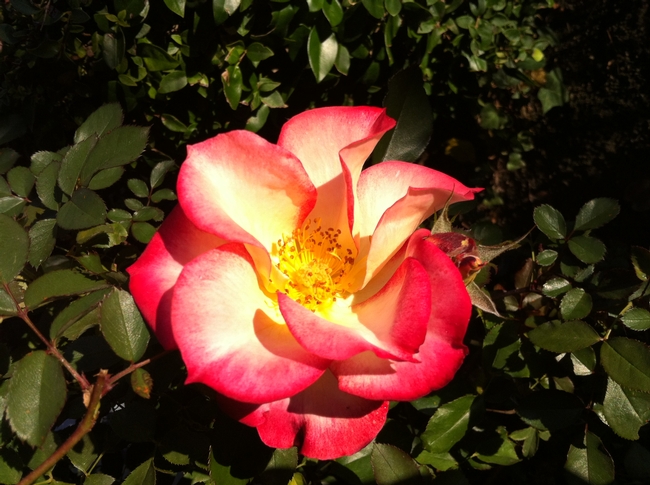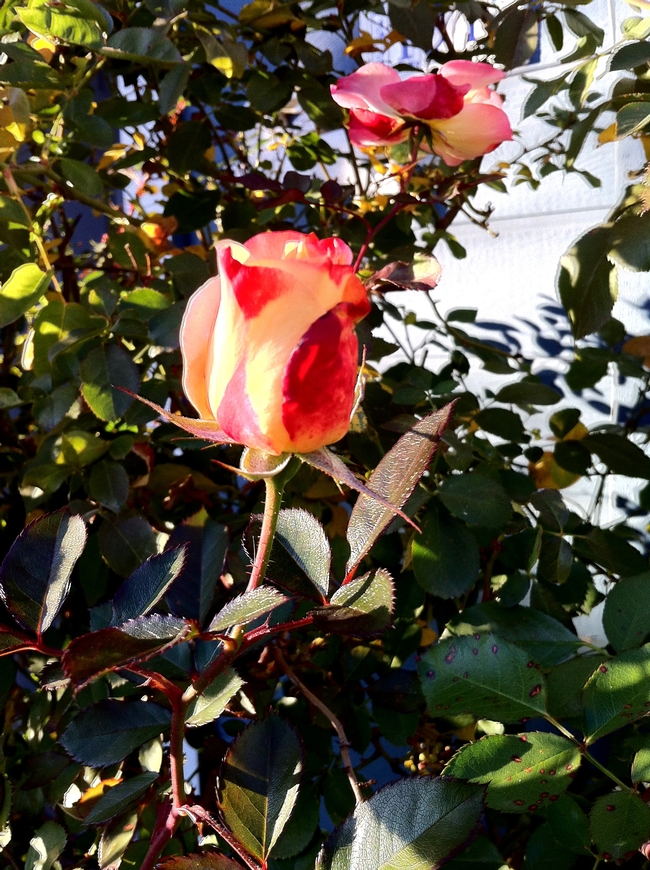Posts Tagged: fertilizing
Oops,I did it again...More Confessions from a Master Gardener
One spring, I had a terrible aphid infestation on my rose bushes. I tried and tried to get rid of them naturally. I sprayed them with water to knock them off. I sprayed soapy water. I tried oils and “all natural” sprays, and powders from the local nursery and specialty mail order catalogues before online shopping became popular. But nothing I did could help to get rid of those darn aphids. I was vastly outnumbered, and I didn’t like it! They called out the cavalry and they were winning this war!
After several exhausting weeks of fighting a battle with aphids, I finally gave up and purchased a chemical spray. I generally don’t use chemicals sprays, but believe me, short of setting the roses on fire – I tried everything natural I could get my hands on! I figure I’m going to get suggestions on alternative methods and products to get rid of aphids. Well, normally they work for me, too but that will have to be another blog…
So years later, I realized that the entire aphid infestation had been my own fault. During fall, I had planted daffodil and tulip bulbs and few scented geraniums in the spaces between the roses. I put bone meal and time release fertilizer when I planted the bulbs. I fertilized the scented geraniums when I planted them. Then in spring, I fertilized the newly sprouting rose bushes, and additional fertilizer on the bulbs and geraniums. With all that fertilizer and nitrogen, the roses burst forth with lots of new growth, tender shoots, buds and foliage! The roses were over-fertilized. All that new growth provided the perfect food and environment for all those hungry little aphids. I had created an aphid’s utopian Shangri-La, no wonder they didn’t want to leave!
No matter how much commercials that try to convince you to that more fertilizer is better, that is simply not the case. Plants that are over-fertilized grow like crazy in early spring. The sudden and fast growth produces too many shoots and leaves causing the overall plant to be weaker plants. Weaker plants can’t fight off bugs and diseases as easily as healthy plants that growing in a more optimal environment. Also, all that extra fertilizer can run off and pollute our local streams, waterways and get into your drinking water, I much more careful and aware about the fertilizer that goes on, in and around all my plants in my garden. I have managed to keep the aphids away from my roses by preventing the problem before it starts.

Betty Boop rose. (photos by Esther Blanco)

Bud of Betty Boop rose.

